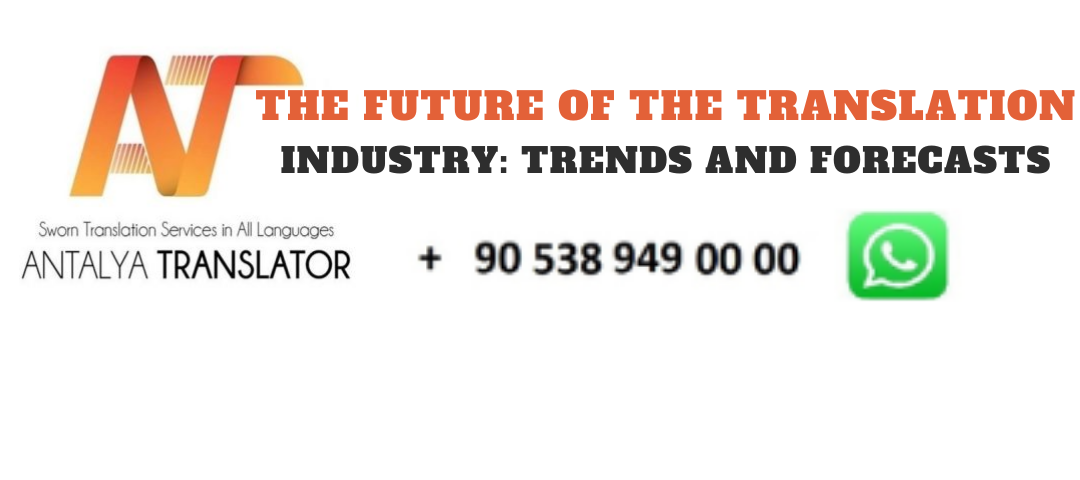
Localisation Target and International Marketing in Translation Projects
August 15, 2023
Translation and Localisation Guidance Services: The Road to Success in Global Communication with Antalya Translator
August 16, 2023In line with the needs of our globalised world, the translation industry is constantly evolving and changing. The need to overcome communication barriers accelerates the development of the translation industry and leads to the emergence of new trends. In this article, we will take a closer look at the current trends in the translation and interpreting industry and the predictions for the future.
Current Trends
- Artificial Intelligence and Machine Translation
The rise of technology is also reflected in translation processes. Artificial intelligence and machine translation mark the beginning of a new era in the translation industry by offering faster and more efficient translation solutions. However, machine translation also has limitations such as not being able to capture all the subtleties of the language and not being able to reflect the emotional aspects of the language.
- Localisation and Cultural Adaptation
For companies that want to compete in global markets, localisation and cultural adaptation are of utmost importance. Adapting content to the target language and culture is the key to successful communication. Therefore, translation specialists need to be skilled not only in language skills but also in cultural sensitivity.
- Specialised and Technical Translations
The need for translation in specialised fields such as medicine, law and technology is increasing. Translators working in such fields provide high quality translations by not only accurately translating technical terminology but also ensuring that the text conforms to the requirements of the field.
Future Prospects
- Best Results through Co-operation
In the future, translation will be driven even further by the power of human and machine co-operation. AI-assisted translation tools will play a major role in meeting the needs for fast translation, while the ability of human interpreters to reflect the emotional and cultural aspects of the language will become even more valuable.
- Consultancy and Cultural Adaptation
In the future, translation specialists will play an important role not only in translation but also in language and cultural counselling. They will provide guidance using their cultural and linguistic knowledge to ensure that the content is appropriate for the target audience.
- Developing Technology and Artificial Intelligence
The advancement of technology will further optimise and improve translation processes. Machine translation will become more accurate and fluent over time thanks to its learning capabilities. Interpreters will be able to use these technological advances to make their work more effective.
Conclusion
The translation industry is constantly changing under the influence of technological developments and globalisation. New technologies such as artificial intelligence and machine translation are transforming translation processes, but the skills and cultural understanding of human translators will always play a critical role. In the future, the co-operation of man and machine to achieve the best results will be key to the translation industry. Translation professionals will continue to use technological developments to their advantage to deliver more creative and effective translations.

